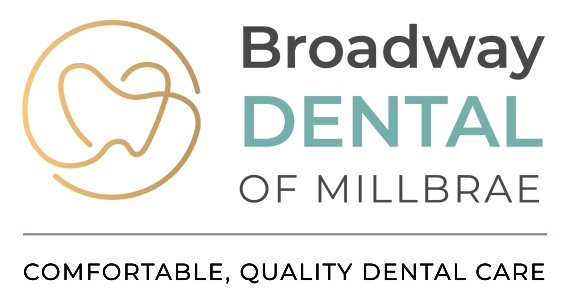Book Now
Smile Science: Why Fluoride Matters for Healthy Teeth
Millbrae, CA

Ever wondered why dentists constantly preach the importance of fluoride? It’s not just a marketing ploy – fluoride is a true champion of healthy teeth. This blog dives into the science behind fluoride and how it protects your pearly whites, keeping your smile bright and healthy.
The Powerhouse Mineral: Unveiling Fluoride’s Magic
Fluoride is a naturally occurring mineral found in water, soil, and some foods. While small amounts are found naturally in saliva, for optimal oral health, additional fluoride exposure is recommended. Here’s how this wonder mineral works its magic on your teeth:
- Strengthens Enamel: Enamel, the hard outer layer of your teeth, is your first line of defense against decay. Fluoride strengthens enamel by incorporating itself into the tooth structure, making it more resistant to acids produced by plaque bacteria.
- Remineralization: Throughout the day, your mouth naturally alternates between periods of demineralization (where acids from food and drinks erode tooth enamel) and remineralization (where saliva helps rebuild enamel). Fluoride enhances this remineralization process, helping to repair minor damage and prevent cavities.
- Plaque Control: Fluoride can also inhibit the growth of plaque bacteria, the sticky film on teeth that contributes to cavities and gum disease.
Fluoride for All Ages: A Lifelong Benefit
The benefits of fluoride extend throughout life, playing a crucial role in both children’s developing teeth and adult oral health:
- Children: During childhood, teeth are still developing. Fluoride exposure during this critical window helps strengthen the enamel of emerging permanent teeth, making them more resistant to decay throughout life. Consult your dentist in Millbrae to discuss the best fluoride options for your child, which may include fluoride toothpaste, supplements, or professional fluoride treatments.
- Adults: Even with strong enamel, adults are still susceptible to cavities. Fluoride continues to play a vital role in preventing decay, promoting remineralization, and reducing plaque formation. Adults can benefit from using fluoridated toothpaste, mouthwash (check the label for fluoride content), and considering professional fluoride treatments as recommended by their dentist.
Beyond Toothpaste: Exploring Fluoride Sources
While fluoridated toothpaste is a cornerstone of good oral hygiene, other sources can contribute to your daily fluoride intake:
- Public Water Supply: In many communities, including Millbrae, public water supplies are fluoridated. Check with your local water authority to confirm if your tap water contains fluoride.
- Fluoride Supplements: For children or adults at high risk of cavities, dentists may recommend fluoride supplements.
- Fluoride-Rich Foods: Certain foods naturally contain small amounts of fluoride, including black tea, grapes, leafy green vegetables, and some seafood.
Finding the Right Balance: Safety Considerations
While fluoride is essential for oral health, excessive intake, particularly in young children, can lead to a condition called fluorosis. Fluorosis causes slight white markings on teeth, usually not aesthetically concerning but a sign of overexposure. Here are some tips to ensure safe and effective fluoride use:
- Supervise Young Children: When children under six use fluoridated toothpaste, supervise brushing to ensure they don’t swallow a large amount. Consider using a pea-sized amount of toothpaste for this age group.
- Consult Your Dentist: If you have concerns about fluoride intake or fluorosis, discuss them with your dentist in Millbrae. They can advise you on the best approach for your individual needs and circumstances.
Smile with Confidence: Embrace the Power of Fluoride
By understanding the science behind fluoride and incorporating it into your oral hygiene routine, you’re investing in a lifetime of healthy smiles. Remember, consult your dentist for personalized advice on fluoride use and discuss any concerns you may have. With a combination of good oral hygiene practices, regular dental checkups, and the power of fluoride, you can keep your smile bright, healthy, and confident for years to come.
Additional Tips:
- Diet: Maintaining a healthy diet low in sugary and acidic foods not only promotes overall health but also reduces the risk of cavities, complementing the benefits of fluoride.
- Flossing: While not directly related to fluoride, flossing is crucial for removing plaque and food particles from between teeth, further enhancing oral health alongside fluoride’s benefits.
Using xylitol-containing sugar-free chewing gum or candies can help reduce plaque formation.
Maintaining a healthy diet and limiting sugary drinks can minimize the risk of cavities.
Practicing good oral hygiene with regular brushing, flossing, and rinsing can significantly improve oral health.
Frequently Asked Questions About Fluoride
Now that you’ve explored the wonders of fluoride, you might have some lingering questions. Here are some Frequently Asked Questions (FAQs) to shed light on common concerns:
Is bottled water fluoridated?
Not all bottled water contains fluoride. Check the label to see if the brand you consume is fluoridated. If you rely primarily on bottled water, discuss alternative fluoride sources with your dentist in Millbrae.
Are there any side effects to using fluoridated toothpaste?
Swallowing a large amount of fluoridated toothpaste, especially for young children, can cause mild stomach upset. Following the recommended pea-sized amount for children under six and supervising brushing minimizes this risk.
What are some signs of fluorosis?
Fluorosis typically manifests as faint white markings or streaks on tooth enamel. In severe cases, brown mottling may occur. Early detection is crucial, and your dentist in Millbrae can assess the severity and recommend appropriate management strategies.
Can I get too much fluoride from other sources?
While uncommon, excessive fluoride intake from multiple sources can occur. If you use a private well for water, have your water tested for fluoride content. Discuss your overall fluoride intake with your dentist to ensure you’re receiving the right amount.
Are there alternatives to fluoride for oral health?
While there’s no substitute for the proven effectiveness of fluoride in preventing cavities, some alternative methods can support oral health:
Using xylitol-containing sugar-free chewing gum or candies can help reduce plaque formation.
Maintaining a healthy diet and limiting sugary drinks can minimize the risk of cavities.
Practicing good oral hygiene with regular brushing, flossing, and rinsing can significantly improve oral health.
However, these alternatives don’t replace the unique benefits of fluoride in strengthening enamel and promoting remineralization.
Embrace a Healthy Smile with Fluoride
Fluoride is a powerful tool in your oral health arsenal. By understanding its benefits and incorporating it into your routine safely, you’re taking a significant step towards a lifetime of healthy smiles. Remember, consult your dentist for personalized advice and a comprehensive oral health plan tailored to your specific needs. With a combination of good oral hygiene, regular dental checkups, and the power of fluoride, you can shine brighter with confidence!


